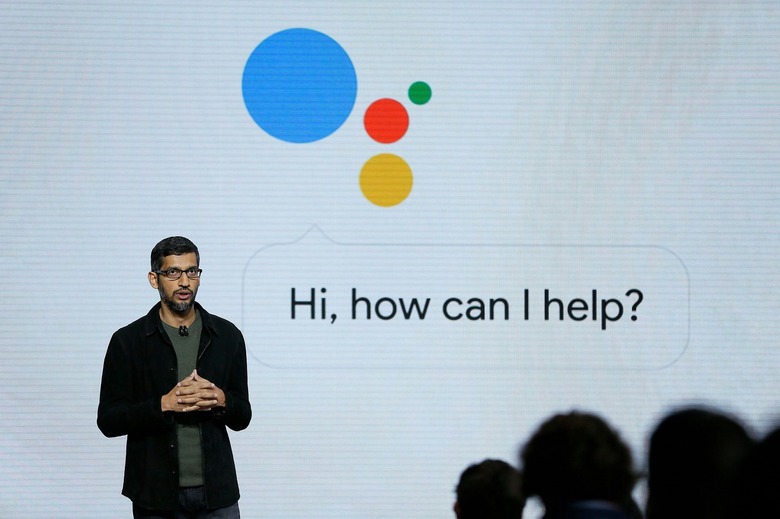Google Duplex Phone Calls Aren't Doing A Good Job Of Disclosing Their Robotic Nature
You could be forgiven for thinking this sounds like something right out of a science fiction novel: Google has started pushing out its new Duplex feature to what is described as a small number of Pixel smartphone owners, which means those users can now use Google's automated AI to call restaurants and some other businesses to make reservations on the users' behalf. Which sounds pretty cool!
However, reports are coming in regarding some of the early calls being made using Duplex, and it sounds like Google still hasn't settled on definitive language that's specific enough to make it clear that a robot — not a human — is what the business on the other end of the phone is speaking with.
In the video above, you can see VentureBeat using Duplex to make a reservation at Cafe Prague in San Francisco. As noted by The Verge in a piece today about that interaction, Duplex never identifies itself as an AI and doesn't tell the person on the other end that this is an automated system you're interacting with:
"'Hi, I'm calling to make a reservation for a client. I'm calling from Google, so the call may be recorded,' is what Duplex says to begin the conversation. And that little bit — about the call coming 'from Google' and potentially being recorded — is the only disclosure that it ever provides. From then on, Duplex handles the requested dinner reservation smoothly."
Google faced a bit of a backlash earlier this year when it first unveiled the futuristic, but creepy, feature, given that Duplex's automated system goes so far as to add "umms" and pauses and other rhythms of natural speech to make you feel like you're talking to a human. But its early demonstration calls didn't spell out that Duplex was indeed non-human, something Google promised it would make clear in future calls as it refines the system.
In June, Google posted an example Duplex call interaction to YouTube, in which the system makes its identity pretty clear: "Hi, I'm the Google Assistant calling to make a reservation for a client. This automated call will be recorded." That's about as unambiguous as you can get, and would go a long way in solving this problem.
Notes The Verge: "After Google first revealed Duplex and the wow factor of its stunning demo wore off, people were quick to raise concerns about disclosure. When a robot can sound this close to a real person — complete with ums and uhs thrown in to heighten the illusion — there needs to be a very direct, immediate explanation from Duplex about what it is. Google has said that it's sticking to its word and will always make clear when humans pick up the phone to an AI helper on the other end."
"We understand and value the discussion around Google Duplex — as we've said from the beginning, transparency in the technology is important," a Google spokesperson told The Verge. "We are designing this feature with disclosure built-in, and we'll make sure the system is appropriately identified."
(Update: A Google spokesman told us the early calls being made via the Duplex system actually include a mix — some being made via the automated AI, and others with human operators. To establish a "baseline" in the early phase of the rollout. Google says calls from the automatic system will announce up-front that they're automated, while any that come from human operators will simply say they're being recorded.)
